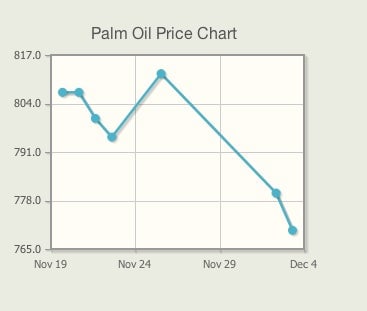How the “Nutella tax” and the China slowdown may force Malaysia and Indonesia to wean off palm oil
Fly into any major Indonesian or Malaysian city and chances are, as the plane descends below the clouds, you will see acres and acres of palm tree plantations.

Fly into any major Indonesian or Malaysian city and chances are, as the plane descends below the clouds, you will see acres and acres of palm tree plantations.
Fund managers often snap up shares in palm oil producers as a proxy for investing in these economies, which are forecast to grow healthily over the next few years.
It may be time for a new proxy. Palm oil has lost a lot of fans in Europe, which is hurting Malaysian and Indonesian producers. France is threatening to impose a so-called “Nutella tax”—legislation designed to stop people eating fatty foods that may triple taxes on palm oil. Meanwhile the European Union said in October it wants to move away from biofuels, amid concerns they drive deforestation while inflating food prices. (Though the EU has since approved use of palm oil as transport fuel.) Slowing growth in China and India could put a big dent in palm oil profits too.
Bloomberg reported that Malaysian palm oil stockpiles were at a record high. The news service added today that demand for Indonesian palm oil is falling. Malaysia is the world’s second largest producer of the commodity. Indonesia is the first. These two South East Asian nations are responsible for 90% of global supply and depend heavily on palm oil for their export trade.
Here is what has happened to the palm oil price in Indonesia in recent days, as provided by the Indonesian Palm Oil Association.

While much of the palm oil these two countries produced is consumed domestically, Malaysia’s palm oil exports were close to one–tenth of its total exports last year (pdf p.13). Indonesia does not make comparable figures available, though the palm oil industry association has forecast shipments of the commodity will shrink this year compared to 2011. Indonesia’s president also considers palm oil to be a pillar of his plan to grow the economy.
The environmental effects of the industry are devastating. Indonesia has deforested an area the size of Scotland to create palm oil plantations, and in some cases people are evicted forcibly and violently. The World Wildlife Fund says palm oil plantations are killing off orangutans and other rainforest life. This report from British NGO Global Witness details accusations of widespread destruction and human rights abuses (pdf) by the palm oil industry.
But while such environmental concerns are warranted, it is the slowing economies of China and India that may prompt the Malaysian and Indonesian governments to attempt to reduce their reliance on palm oil. India is the biggest importer of the stuff. China is second. Chinese traders cancelled orders for 300,000 tonnes of palm oil late last month, according to the FT (paywall). And India’s slowdown is dampening demand for the material too.